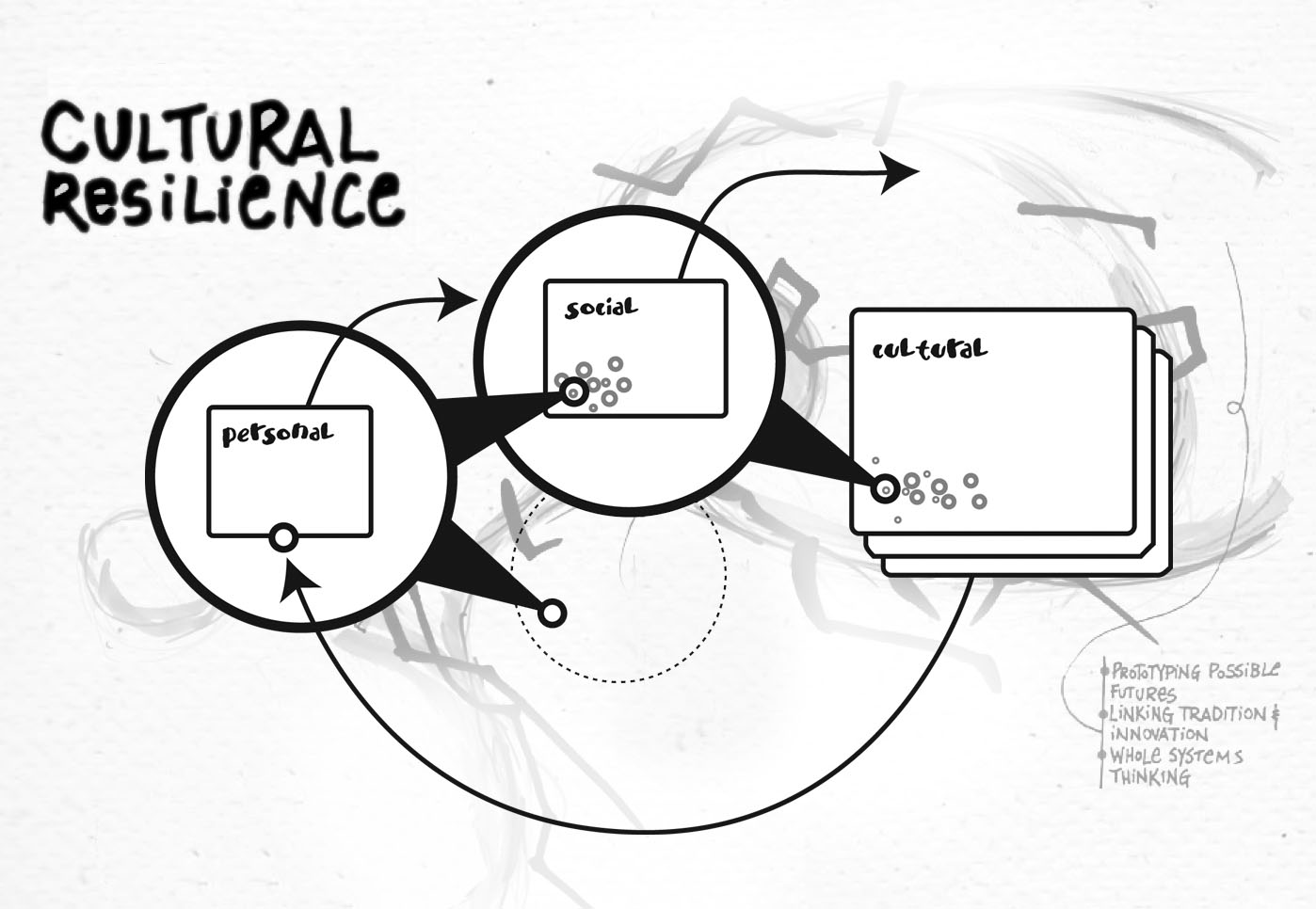Cultural Resilience
by Maja Kuzmanovic and Nik Gaffney
For humans to thrive in uncertain, turbulent times, resilience is an essential survival tactic. A resilient system is both flexible and robust. It is continuously engaged in the delicate balancing act of growing & evolving, adapting to change and discarding unsustainable elements. Change is a never-ending process, growing less predictable as our habitats, societies, economic and technological systems increase complexity and become more interdependent. To respond to unpredictability, we can look at improving the human ability to face and embrace change, whether perceived as positive, negative or neutral (e.g. birth of a child, environmental crisis, or moving house). Resilience is required at a personal, social and cultural scale. By integrating different approaches to developing resilience across these scales, we can strengthen the 'immune system' of culture as a whole.
Mentoring, life-long learning, critical reflection and a pro-active approach to problem solving can strengthen personal resilience. Resilient individuals are able to endure through difficult times and see every moment as an opportunity for development. They experience the world with curiosity, equanimity and clarity; observing before acting and creatively responding to change. They know when to lead, when to follow or when to hold their ground.
A heterogeneous group of people working together on a common purpose is able to approach problems from different perspectives, create a shared experience, challenge dogmatic thinking and provide solutions for multiple benefits. Collaboration between people with diverse skills, interests and levels of experience (from apprentices to masters) amplifies resilience of social structures. In this context it can be advantageous to work with a growing community of generalists – people able to make connections between disparate fields, providing in-breadth knowledge, complementary to the more common in-depth specialisations.
For a resilient culture to arise from interactions between personal and social resilience, a stable support infrastructure is needed – open systems, cultural laboratories, knowledge pools – supporting human needs. We have no certainty about the kind of cultures that could materialise, but we can speculate on how they could look and experiment with them today. Prototype and rehearse for possible futures. We can apply whole systems thinking to integrating resilient cultural traditions with emerging arts, sciences, design and technology. Through unexpected alliances between these fields, speculation becomes rooted in the real world, weaving a resilient cultural fabric for years to come.
Personal scale techniques:
- Mentoring & coaching
- Training & practice
- Participatory learning
- DIY & creative exploration
Social scale techniques:
- Transdisciplinary guilds
- Post-industrial models of life & work
- Intergenerational collaboration
- Collaborative process facilitation
Cultural scale techniques:
- Experiments in Speculative Culture
- Open (re)source culture
- Systems thinking
- Biomimicry

